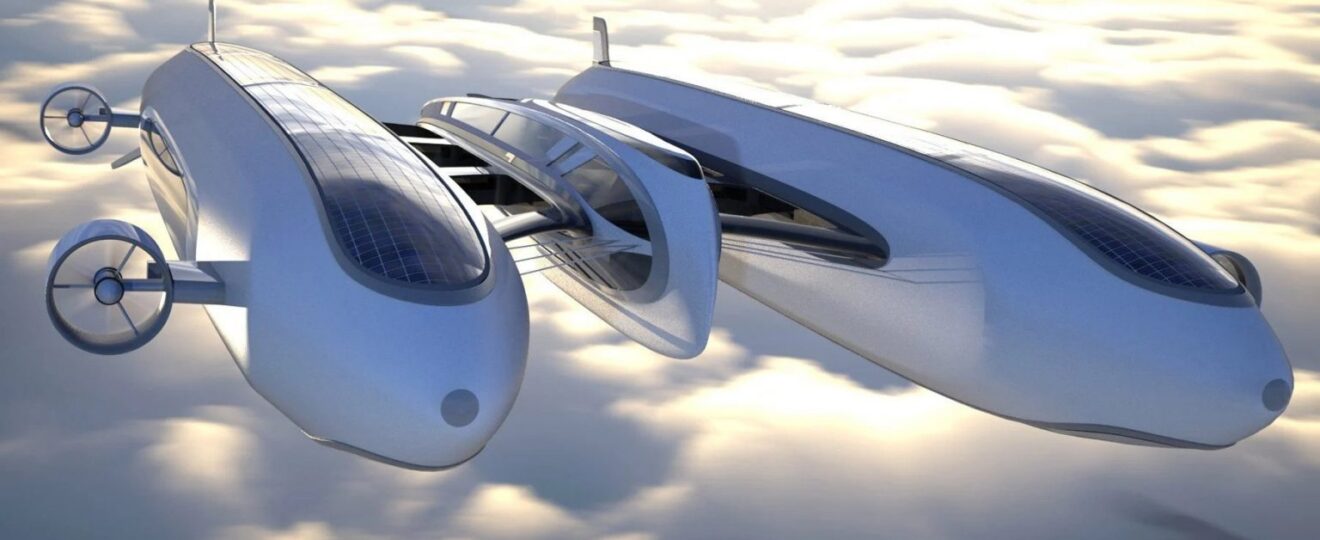The nearly 500-foot-long air yacht with 10 stunning guest suites would sail in the sky and sea, with zero emissions
by Jessica Cherner. Photo: Lazzarini Design Studio.

Yachts and private planes make for luxurious ways to zip from one place to another, but recently, a businessman based in Germany and Italian designer Pierpaolo Lazzarini discovered what happens when they combine boats and jets: the ultra-sleek sky yacht. Equipped with eight counter-rotating electric engines powered by super-lightweight batteries and solar panels, the nearly 500-foot-long yacht can traverse the sky (and sea) at 60 knots for more than two days straight with zero emissions. Plus, aside from its full-electric mobility, the air yacht is sustainable in other ways too: It will be built entirely from carbon fiber, which is as high-strength as it is lightweight.

Lazzarini’s design looks like something out of the future: a spacious living room and dining area housed within the sky yacht’s central torpedo-shaped structure that’s connected via eight carbon bridges (four on each side) to two 150-foot-long blimps. And the blimps that contain a whopping 14,125,867 cubic feet of helium that keep the vessel high in the sky, flanking the main compartment, aren’t just there to elevate the jet: Between the two, there are 10 guest suites, all of which boast 360-degree views.

The two balloon-like compartments on either side of the impressive vessel comprise an inflatable base that allows the innovative machine to float atop the water surface when the owner is in the mood to sail the sea versus the sky. Though being able to choose which medium makes the most sense for specific destinations sounds like an ideal way to travel, the sky yacht is, unfortunately, still quite a ways off from replacing typical ships and planes.
For the private owner who commissioned the estimated $627,511,500 sky yacht, however, his new mode of transportation is the future of travel.

In fact, Lazzarini has promised that a first-scale model prototype will lift into the air later this year, and a collection of slightly varying designs (of different lengths) is currently in the early phases of both engineering and prototyping. So, perhaps we’ll all be passengers onboard a boat that flies before the end of the decade.










